Bahis sitesi incelemeleri sayfamızda firmalar hakkında detaylı bilgiler, bu firmaların bonusları ve giriş adresleri ile ilgili bağlantılar yer almaktadır. İnceleme sayfalarımıza yorum göndererek görüşlerinizi belirtebilirsiniz. İncelemeler düzenli olarak güncellenmektedir.
2024 yılının en iyi ve en güvenilir bahis siteleri
| Sıra | Bahis Sitesi | Bonus | Değerlendirme | Giriş |
|---|---|---|---|---|
| 1 |

| 100 TL Deneme Bonusu + 3500 TL Hoş Geldin | Giriş İncele | |
| 2 |
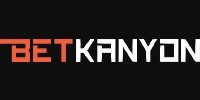
| 100 TL Bedava Deneme - 2500 TL Hoş Geldin | Giriş İncele | |
| 3 |
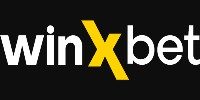
| 150 TL Bedava Deneme - 2000 TL Hoş Geldin | Giriş İncele | |
| 4 |

| %100 500 TL Hoş Geldin + %25 Yatırım Bonusu | Giriş İncele | |
| 5 |
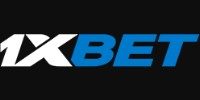
| 150 FreeSpin + 15000 TL Hoş Geldin Bonusu | Giriş İncele | |
| 6 |
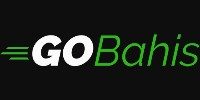
| 100 TL Bedava Deneme - 2500 TL Hoş Geldin | Giriş İncele | |
| 7 |
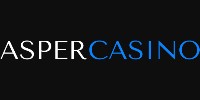
| 100 TL Deneme Bonusu - 5000 TL Hoş Geldin | Giriş İncele | |
| 8 |
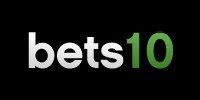
| %100 5000 TL İlk Yatırım Bonusu | Giriş İncele | |
| 9 |

| 250 TL Deneme Bonusu + 3365 TL Hoş Geldin | Giriş İncele | |
| 10 |

| 1000 TL Hoş Geldin + %30 Spor Kayıp Bonusu | Giriş İncele | |
| 11 |

| 100 TL Bedava Deneme - 2500 TL Hoş Geldin | Giriş İncele | |
| 12 |

| 35 FreeSpin + 1500 TL Hoş Geldin | Giriş İncele | |
| 13 |
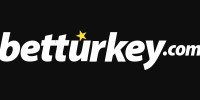
| 250 TL Bedava Deneme + 3000 TL İlk Yatırım | Giriş İncele | |
| 14 |

| 1000 TL Hoş Geldin + Her Gün Bedava 100 TL | Giriş İncele | |
| 15 |
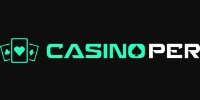
| 1000 TL Hoş Geldin Bonusu + 50 Free Spin | Giriş İncele | |
| 16 |
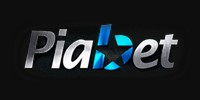
| 1000 TL Hoş Geldin + 300 FreeSpin | Giriş İncele | |
| 17 |
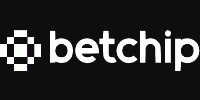
| 6000 TL Hoş Geldin Bonusu + 300 Free Spin | Giriş İncele | |
| 18 |
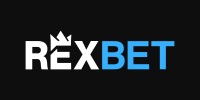
| 1000 TL Hoş Geldin + 1000 TL Bedava Bahis | Giriş İncele | |
| 19 |
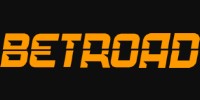
| 3000 TL Hoş Geldin + %10 Kayıp İade | Giriş İncele | |
| 20 |
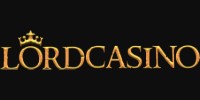
| %15 Çevrimsiz Yatırım Bonusu + %5 Free Spin | Giriş İncele | |
| 21 |
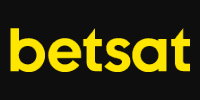
| 50 TL Deneme Bonusu + 10000 TL Hoş Geldin | Giriş İncele | |
| 22 |

| 5000 TL İlk Yatırım Bonusu + %10 Çevrimsiz | Giriş İncele | |
| 23 |
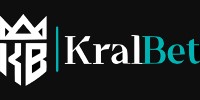
| 5000 TL İlk Yatırım Bonusu + %50 Çevrimsiz | Giriş İncele | |
| 24 |

| 500 TL Hoş Geldin + %25 Anlık Spor Discount | Giriş İncele | |
| 25 |
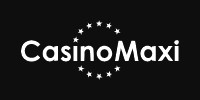
| 2500 TL Hoş Geldin + 250 Free Spin | Giriş İncele | |
| 26 |
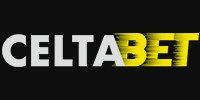
| 1500 TL Hoş Geldin + 10 FreeSpin | Giriş İncele | |
| 27 |
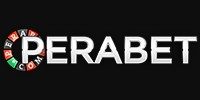
| 250 TL Hoş Geldin + %20 QR Kod Yatırım Bonusu | Giriş İncele | |
| 28 |
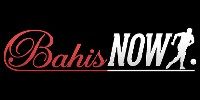
| 1250 TL Hoş Geldin + 100 TL Davet Bonusu | Giriş İncele | |
| 29 |

| 250 TL Bedava Deneme + 3000 TL Hoş Geldin | Giriş İncele | |
| 30 |
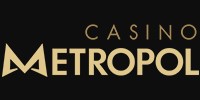
| 1000 TL Hoş Geldin Bonusu + 50 Free Spi | Giriş İncele | |
| 31 |
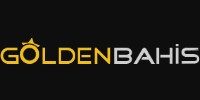
| 500 TL Hoş Geldin + %20 Casino Discount" | Giriş İncele | |
| 32 |
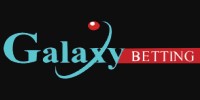
| 1500 TL Hoş Geldin + 100 TL Bedava Deneme | Giriş İncele | |
| 33 |
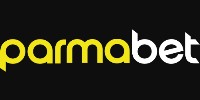
| 2000 TL Hoş Geldin + 75 Free Spin | Giriş İncele | |
| 34 |
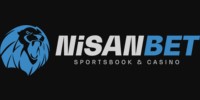
| 50 TL Free Bet + 500 TL Hoş Geldin Bonusu | Giriş İncele | |
| 35 |
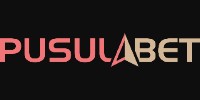
| 1500 TL Hoş Geldin + %20 Çevrimsiz Discount | Giriş İncele | |
| 36 |

| %100 500 TL Hoş Geldin Bonusu + %15 Çevrimsiz | Giriş İncele | |
| 37 |

| 500 TL Hoş Geldin + %20 Spor Kayıp Bonusu | Giriş İncele | |
| 38 |
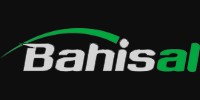
| 50 TL Deneme Bonusu - 2000 TL Hoş Geldin | Giriş İncele | |
| 39 |
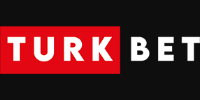
| 2000 TL Hoş Geldin + 50 Free Spin | Giriş İncele | |
| 40 |
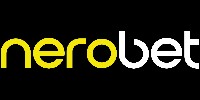
| 500 TL Hoş Geldin + %20 Spor Kayıp Bonusu | Giriş İncele | |
| 41 |
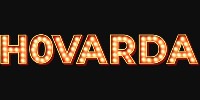
| %300 1500 TL Hoş Geldin Bonusu | Giriş İncele | |
| 42 |

| 25 TL Bedava Deneme + 500 TL Hoş Geldin | Giriş İncele | |
| 43 |
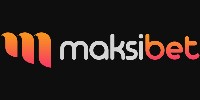
| 5000 TL Hoş Geldin + %20 Çevrimsiz Bonus | Giriş İncele | |
| 44 |

| %100 250 TL Hoş Geldin Bonusu + 15 TL Bedava | Giriş İncele | |
| 45 |
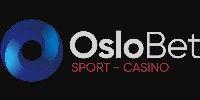
| 20 TL Bedava Deneme + %25 Çevrimsiz Bonus | Giriş İncele | |
| 46 |
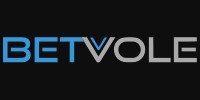
| %100 400 TL İlk Yatırım Bonusu + 15 TL Bedava | Giriş İncele | |
| 47 |

| Yeni Üyelere 1000 TL Nakit İade | Giriş İncele | |
| 48 |
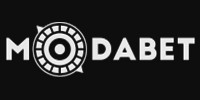
| %100 2000 TL Slot & Casino Hoş Geldin Bonusu | Giriş İncele |

Bahis Siteleri 2024
“2024 yılında en iyi ve güvenilir bahis siteleri hangileri” diye merak ediyorsanız yukarıdaki tabloda yer alan inceleme bağlantılarına göz atınız. Bu tablodaki siteler iki kategoride toplanmıştır:
- En iyi bahis siteleri
- En güvenilir bahis siteleri
Not: Yüksek oranları ve cazip bonusları nedeniyle bazı siteler “en iyi”, bazı siteler ise sektördeki bilinirlikleri nedeniyle “en güvenilir” kategorisinde yer almaktadır.
Bahis Siteleri
Ülkemizde online bahisler özellikler son birkaç yıl içerisinde kullanım oranlarını maksimum rakamlara ulaştırmışlardır. Bahis severler online bahisler için yabancı kaynaklı firmaları tercih etmektedir. Bu tip sitelerde casino oyunlarının yer alması, bonus imkânları ve yüksek oranlı spor bahisleri kullanıcıların dikkatini çekmektedir. Bireyler sayıları yüzleri geçen siteler arasında doğru ve kaliteli olanları tercih ederek istedikleri kadar yüksek kazanç elde edinilmektedir. Ancak kullanıcılar bunun için öncelikle bahis sitelerinde güvenirlik konusunda bilmeleri gereken detayların tamamına hâkim olmalıdır.
Bahis Sitelerinde Güvenirlik
Online bahislerin hızlı şekilde sonuç vermesi ve 7/24 yapılabilmesi, getirdiği avantajlardan biridir. Bahis severler uzun araştırmalar yapmak yerine; Tipobet, Hiltonbet, Goldenbahis, Elexbet gibi adreslere üye olarak anında güvenilir bahis yapmaya başlayabilmektedir. Bahsi geçen adreslerin tamamında lisans güvencesi, yüksek oranlar ya da farklı ödeme seçenekleri avantajları yer almaktadır. bu sayede bireyler online bahislerde ihtiyaç duydukları alanlarda istedikleri özelliklere kavuşabilmektedir.
- Hangi Bahis Siteleri Güvenilirdir?
Online bahislere ilgili olan kullanıcılar bahis sitelerinin güvenilir olup olmadığı konusunda bireysel araştırma yapmayı tercih etmektedir. Bu nedenden ötürü son zamanlarda bireysel güven analizi yapan kullanıcı sayısında artış yaşanmıştır. İsmini saydığımız siteler hakkında güven analizleri olumlu netice verdiğinden ötürü herhangi bir sorun çıkmamaktadır. Ancak kullanıcılar farklı adresler üzerinde analiz yaparken güvenilir sitelerin ortak özelliklerini kontrol ederek aşamalar halinde ilerlemelidir.
- Güvenilir Sitelerin Özellikleri Nelerdir?
Bahis severler güven analizlerine lisans ile başlangıç yapmalıdır. Güvenilir bahis sitelerinin tamamı için lisans temel ortak özelliklerdendir. Her güvenli sitede, kontrol edilmesinde ve güncelliğinde sıkıntı olmayan bir lisans bulunmaktadır. Kullanıcılar lisans denetimlerinden sonra sitenin firma bilgilerine, ödeme yöntemlerine, bonuslarına ve bahis seçeneklerine de bakmalıdır. Sayılan seçeneklerin tamamı güvenilir bir adreste bahis severleri tatmin edecek yeterlilikte olmak zorundadır.
- Güvenilir Bahis Sitelerinde Yakalanan Avantajlar
Kullanıcılar güvenilir bir siteye üye olduklarında bahis gelirlerini zorlanmadan çekebilmektedir. Üstelik güvenilir firmalar diğer siteler gibi sürekli belge talep etmemektedir. Günümüzde pek çok site, kullanıcılar yüksek kazanç elde ettiklerinde farklı bahaneler ile bireylerin hesaplarını silmektedir. Ancak sayılan güvenilir bahis sitelerinde bu gibi sorunlar hiçbir şekilde görülmemektedir.
Bahis Sitelerinde Üyelik
Yabancı kaynaklı bahis sitelerinin ortak özelliklerinden biri de üyelikten oluşmaktadır. Kullanıcılar sitelerde aktif bir bahis yaşamı elde edebilmek için mutlak suretle adreslere üye olmak zorundadır. Bu kapsamda bazı siteler içerik görüntüleme seçeneklerini de sadece üyelerine özel hale getirmişlerdir. Ancak üyelik işlemleri gerektiği gibi halledilirse birkaç dakikada sona erdiği için kullanıcılar sıkıntı yaşamamaktadır.
- Güvenilir Bahis Sitelerine Nasıl Üye Olunur?
Bahis siteleri üyelik işlemleri için izlemiş oldukları hizmet politikası çerçevesinde bir form hazırlamaktadır. Üyelik formu olarak bilinen bu formlar genellikle sitelerin ana sayfalarının sağ üst kısımlarında yer almaktadır. Kullanıcılar herhangi bir adrese, üyelik formunu doldurmadan üye olamamaktadır.
- Bahis Sitelerinde Üyelik Şartları
Canlı bahis siteleri içerik olarak kumar oyunları, spor bahisleri gibi eğlence ve kazanç sistemleri içermektedir. Bu nedenden ötürü site kullanımları ancak on sekiz yaş ve üzerindeki bireyler için uygun görülmektedir. Güvenilir bahis siteleri sorumlu oyun ve bilinçli kumar çerçevesinde hareket etmektedir. Bu da sitelere üyelik yaptırabilmek için on sekiz yaş şartının gelmesine neden olmuştır. Yaş şartının yanı sıra kullanıcılar üyelik formuna eksik ya da hatalı şekilde bilgi girişi yapmaları halinde de üyeliklerini tamamlayamamaktadır.
- Bahis Siteleri Üyelik İşlemleri
Bireyler bahis sitelerinde üyelik işlemlerinde genellikle üç aşamalı bir form sürecinden geçmektedir. Ücretsiz olan üyeliklerde öncelikle kişisel veriler forma girilmektedir. Sonrasında ise hesap bilgileri başlığında kullanıcı adı ya da şifre gibi bilgiler oluşturulmaktadır. Son adım ise verilen bilgilerin onaylanmasından oluşmaktadır. Formun sitelere gönderilmesinin ardından mail adreslerine gelen aktivasyon koduna tıklayan kullanıcılar istedikleri siteye tam olarak üye olmuş sayılmaktadır. Üyeliklerde aktivasyon kodu en önemli bölümlerden biridir.
Yüksek Oranlı Bahis Siteleri
Kullanıcılar Tipobet, Hiltonbet, Goldenbahis, Elexbet gibi yüksek oranlı siteler sayesinde spor bahislerinden sağlam şekilde para kazanabilmektedir. Bahsi geçen siteler, bahislerin kazanımı arkasından anında para transferlerini kullanıcı hesaplarına göndermektedir. Bu sayede kullanıcılar üyesi oldukları siteye çekim talebi göndermelerinden sonra kazançlarını sorunsuz şekilde nakit olarak da değerlendirebilmektedir.
- Maç Öncesi Bahislerde Yüksek Oran Veren Siteler
Online bahis siteleri merkezleri farklı ülkelerde bulunan büyük bahis firmalarına bağlıdır. Özellikle derbi maçlar için belirlenen oranlar, firmaların yönlendirmeleri ve istekleri doğrultusunda kendini göstermektedir. Kaliteli siteler, maç öncesi bahislerde oranları oldukça uzun süre öncesinde yayımlayabilmektedir. Bu sayede bireyler bahislerini analizleri çerçevesinde rahatlıkla yatırabilmektedir.
- Canlı Bahislerde Yüksek Oran Veren Siteler
Spor bahislerinde oranlar canlı bahislerde de kendini göstermektedir. Canlı bahisler, maç öncesi bahislerden farklı bir sisteme sahiptir. Kişilerin maç öncesi bahislerini yatırabilmeleri için mücadelenin başlamamış olması gerekmektedir. Ancak canlı bahislerde oranlar, maç ile birlikte belli olmaktadır. Sayılan sitelerde finansal dayanaklar sağlam olduğu için canlı bahis oranları da yüksektir. Bu sayede kullanıcılar mücadele süresi boyunca; futbol, basketbol, tenis ya da hentbol olması fark etmeksizin yüksek oranlardan canlı bahis kuponları yatırabilmektedir.
- Bahis Sitelerinde Yüksek Oran Nasıl Anlaşılır?
Online bahis severler zaman içerisinde kendilerini bu alanda geliştirmektedir. Sitelerin sistemlerinin anlaşılmasından sonra oran analizi yapmak da güven analizi yapmak da mümkün hale gelmektedir. Kullanıcıların analizleri için birden fazla bahis sitesinde aynı maçın oranlarını açmaları gerekmektedir. Bu sayede bahis severler hangi sitedeki oranların daha yüksek olduğunu saniyeler içerisinde anlayabilmektedir. Her maç öncesinde tekrarlanan bu rutin bahis tutkunlarının daima yüksek oranlardan bahis yapabilmelerini garantilemektedir.
Deneme Bonusu Veren Bahis Siteleri
Bahis severler için online bahis siteleri arasında karar vermek geçmişe göre daha zorludur. Çünkü artık sektörde yüzlerce farklı firma bulunmaktadır. Bazı firmaların bağlı oldukları şirketler aynı olmasına karşın ismi hiç duyulmamış siteler de yok değildir. Bu gibi durumlarda karar alınması güven analizlerinden sonra bakılan bonus sistemleri ile gerçekleşmektedir.
- Bahis Siteleri Neden Deneme Bonusu Verir?
Deneme bonusları kullanıcıların sitelere sadece üye olmaları ile elde edebildikleri nadir kampanyalardandır. Bu bağlamda siteler, kullanıcılarından herhangi bir yatırım talep etmeden para dağıtımı yapmış olmaktadır. 50 TL’ye kadar çıktığı görülen deneme bonusları, kullanıcı sayısını artırmak isteyen sitelerde görülmektedir. Ayrıca bahis siteleri finansal açıdan güçlü olduklarını göstermek için de deneme bonusu verebilmektedir.
- Bahis Sitelerinden Deneme Bonusu Nasıl Alınır?
Deneme bonusu almak aslında diğer bonusları almaktan daha kolaydır. Ancak bu kampanyanın da kendine has özellikleri bulunmaktadır. Öncelikle kullanıcılar bir siteye ancak ilk kez üye olurlarsa deneme bonusu elde etmek şansına sahip olurlar. Üyelik işlemlerinden sonra hesap onaylarının gerçekleşmesi bonus şartlarındandır. Sonrasında ise yatırım yapılmadan canlı destek hattına bağlanarak bonus talep edilmelidir.
- Deneme Bonusu Kullanım Şartları
Bahis severler için deneme bonusu alımlarında olduğu gibi kullanımlarında da belli kurallar göze çarpmaktadır. Öncelikle sitelerde deneme bonusları genellikle majör bölümlerde kullandırılmaktadır. Kullanımlar ise tek kerede gerçekleşmektedir. Yani bireyler bonuslarının bir kısmını spor bir kısmını ise casino alanında değerlendirememektedir. Ek olarak deneme bonusu ile elde edilen kazançlar ancak ilk yatırımların ardından siteden çekilmektedir.
Bahis Sitelerindeki İçerikler
Kaliteli bahis firmalarını diğer sitelerden ayıran en önemli özelliklerden biri de sitelerin içerikleridir. Kullanıcılar sayılan güvenilir bahis firmalarına üye olmaları halinde aşağıda başlıklar halinde verilen bahis sistemleri üzerinden kısa sürede yüksek kazançlar elde edebilmektedir.
- Spor Bahisleri
Güvenilir bahis sitelerinde spor bahis içerikleri bir başlık ile verilmemektedir. Kullanıcılar bu tip sitelerde canlı bahisler, maç öncesi bahisler ve sanal spor bahisleri ile para kazanabilmektedir. Üstelik kaliteli bahis firmalarında spor bahislerinin kazandırdığı para ve müşteri memnuniyeti canlı maç yayınları ile artırılmaktadır.
- Casino Oyunları
Casino oyunlarına ilgi duyan bahis severler online bahis sitelerinde hem canlı hem de bilgisayarlar üzerinden oyun katılımı gerçekleştirebilmektedir. İki türlü de sitelerde; poker, slot, rulet, bakara, blackjack gibi oyunların bulunması mümkündür. Kullanıcılar bahsi geçen oyunlara canlı olarak katılım sağladıklarında gerçek krupiyeler ile oyun keyiflerini sürebilmektedir.
- Şans Oyunları
Şans oyunları kaliteli ve güvenilir bahis sitelerinde görülen casino sistemlerinden biridir. Bahis severler Bingo ya da Tombala gibi bölümlerden bu oyunlara erişim sağlayabilmektedir. Kazı Kazan türünde de oyunların bulunduğu şans kategorisinde düşük bahis oranları ile yüksek paralar elde edilebilmektedir. Üstelik sitelerdeki şans oyunları canlı olarak da oynanabilmektedir.
